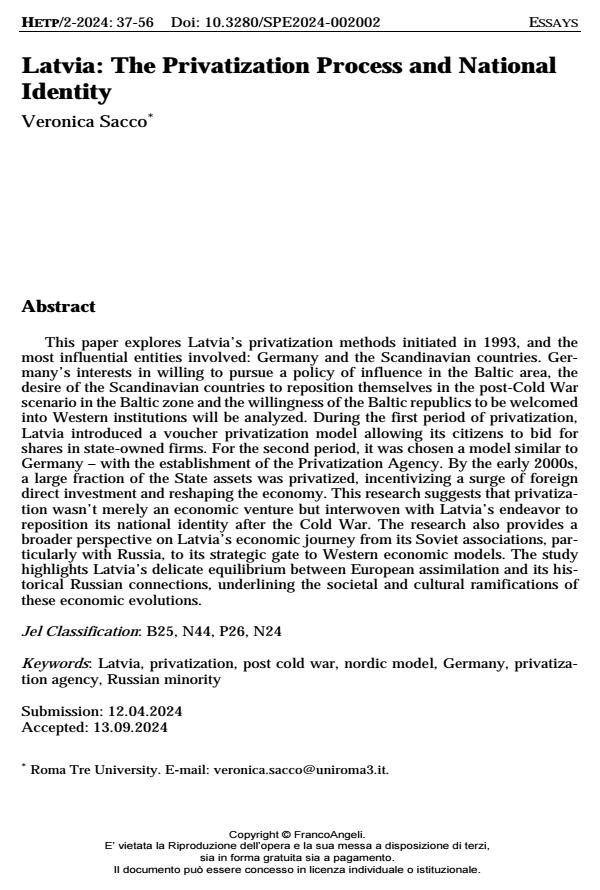Latvia: The Privatization Process and National Identity
Journal title HISTORY OF ECONOMIC THOUGHT AND POLICY
Author/s Veronica Sacco
Publishing Year 2025 Issue 2024/2
Language English Pages 20 P. 37-56 File size 162 KB
DOI 10.3280/SPE2024-002002
DOI is like a bar code for intellectual property: to have more infomation
click here
Below, you can see the article first page
If you want to buy this article in PDF format, you can do it, following the instructions to buy download credits

FrancoAngeli is member of Publishers International Linking Association, Inc (PILA), a not-for-profit association which run the CrossRef service enabling links to and from online scholarly content.
This paper explores Latvia’s privatization methods initiated in 1993, and the most influential entities involved: Germany and the Scandinavian countries. Germany’s interests in willing to pursue a policy of influence in the Baltic area, the desire of the Scandinavian countries to reposition themselves in the post-Cold War scenario in the Baltic zone and the willingness of the Baltic republics to be welcomed into Western institutions will be analyzed. During the first period of privatization, Latvia introduced a voucher privatization model allowing its citizens to bid for shares in state-owned firms. For the second period, it was chosen a model similar to Germany – with the establishment of the Privatization Agency. By the early 2000s, a large fraction of the State assets was privatized, incentivizing a surge of foreign direct investment and reshaping the economy. This research suggests that privatization wasn’t merely an economic venture but interwoven with Latvia’s endeavor to reposition its national identity after the Cold War. The research also provides a broader perspective on Latvia’s economic journey from its Soviet associations, particularly with Russia, to its strategic gate to Western economic models. The study highlights Latvia’s delicate equilibrium between European assimilation and its historical Russian connections, underlining the societal and cultural ramifications of these economic evolutions.
Keywords: Latvia, privatization, post cold war, nordic model, Germany, privatization agency, Russian minority
Jel codes: B25, N44, P26, N24
Veronica Sacco, Latvia: The Privatization Process and National Identity in "HISTORY OF ECONOMIC THOUGHT AND POLICY" 2/2024, pp 37-56, DOI: 10.3280/SPE2024-002002